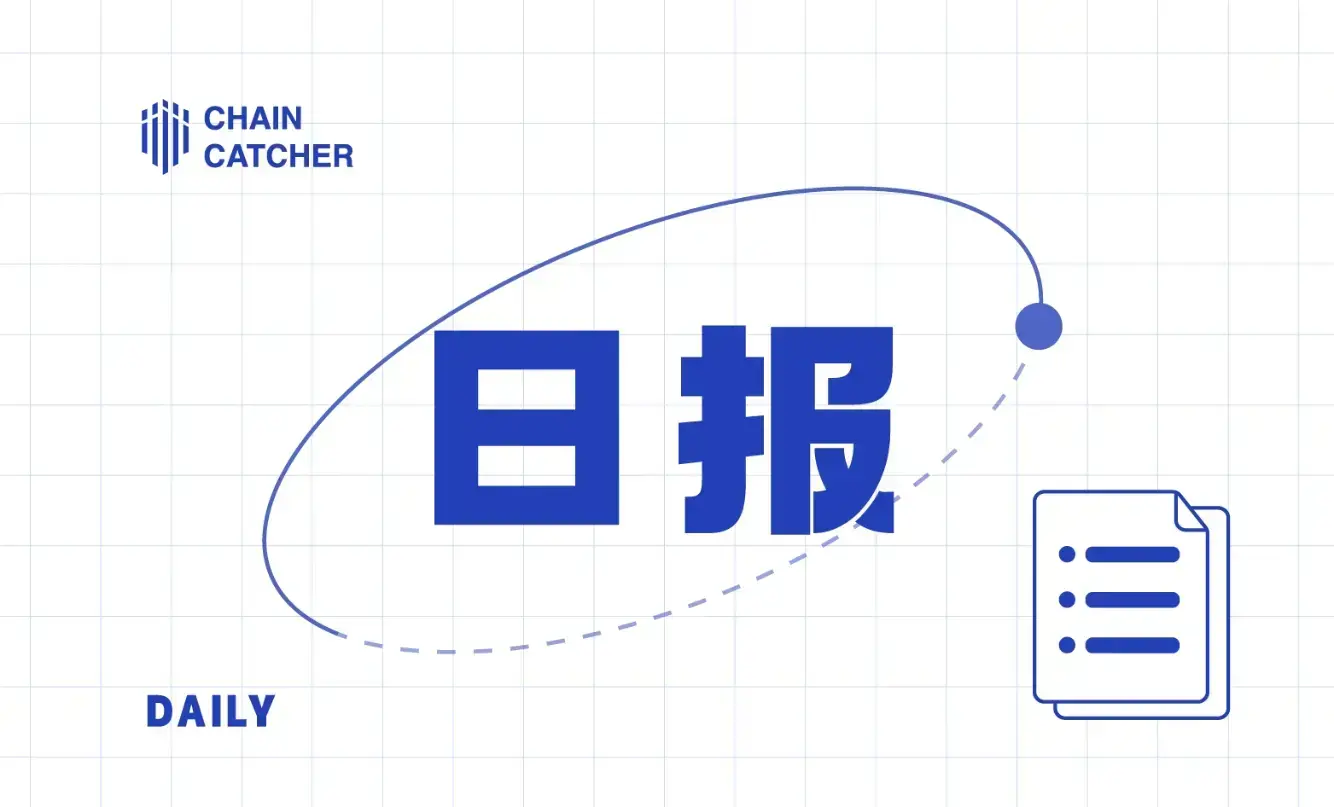Forbes: Why Bitcoin Mining Companies Are Becoming AI Concept Stocks?
Original Title: “Why These Bitcoin Miners Are Becoming Summer's Hot AI Stocks”
Author: Nina Bambysheva, Forbes
Translation: Luffy, Foresight News
Electricity resources have become a hot commodity in the field of artificial intelligence (AI). Take the cloud computing provider CoreWeave as an example; the company signed a $3.5 billion partnership agreement with Core Scientific earlier this month. According to the agreement, CoreWeave will pay this Austin-based Bitcoin mining company's data center $290 million annually over 12 years to host AI-related computing hardware. Additionally, CoreWeave will cover all capital expenditures.
This deal is very lucrative for Core Scientific, whose stock price doubled in early June, reaching $10. Some observers believe that Core Scientific has become a new "weapon" in the AI field. On June 26, CoreWeave announced a second partnership, which is expected to bring $1.2 billion in revenue to Core Scientific over the next few years. As one of North America's largest Bitcoin miners, Core Scientific once faced operational difficulties and only escaped bankruptcy earlier this year.
Applications like ChatGPT have driven a surge in demand for large computing capacity (the power consumed by a ChatGPT query is ten times that of a traditional Google search), making companies like Core Scientific highly sought after, as they can utilize cheap electricity from regions like Texas and North Dakota and have signed agreements to procure more energy from elsewhere. The Lawrence Berkeley National Laboratory research center states that building a high-performance computing (HPC) data center from scratch typically takes 3-5 years, and the current wait time for grid connections can be as long as 6 years, making having sufficient power crucial at this time.
Adam Sullivan, CEO of Core Scientific
"The demand is infinite," said Adam Sullivan, CEO of Core Scientific. "If we just execute according to the current contracts, we will become one of the top ten data center companies in the U.S. and host a significant portion of AI hardware in the coming years."
Research from JPMorgan shows that since Core Scientific announced its first CoreWeave partnership on June 3, the total market capitalization of 14 publicly traded Bitcoin miners in the U.S. has surged by 22%, contrasting sharply with Bitcoin's 12% decline and the S&P 500's 4% rise.
A JPMorgan research report dated June 24 indicates that these 14 miners control about 5 gigawatts of power, of which 3.6 gigawatts can be used for HPC. They have also signed additional purchase agreements for 4.5 gigawatts with new power plants at various stages of construction and permitting.
This energy is enough to power approximately 3.4 million households for a year. The Electric Power Research Institute states that driven by the AI boom, energy demand from data centers could surge to 9% of U.S. electricity generation by 2030. This projected increase is more than double the current consumption.
However, miners cannot easily repurpose excess power for AI. Wes Cummins, CEO of data center developer Applied Digital, stated, "It's hard to get a lot of power in the short term, and that's a major asset many U.S. Bitcoin miners currently have, but those power contracts will only be valuable if they have some supporting infrastructure (mainly fiber connections)." Fiber optic cables are crucial in high-performance computing as they enable high-speed data transmission.
HC Wainwright analyst Kevin Dede pointed out, "Bitcoin purists would argue, 'No, you can't host AI machines in a Bitcoin mining center.' Well, I get it. You need cleaner air and better cooling." However, he added that smaller AI participants might not be interested in the massive companies (like Amazon's AWS, Microsoft's Azure, and Google Cloud) that have large data centers and cloud infrastructures but could better fit into the service range provided by Bitcoin miners, which could ultimately lead to a hybrid of Bitcoin mining and HPC data centers.
Investors also agree with this view.
Investment bank Benchmark analyst Mark Palmer wrote in a research report on June 21, "In the past three weeks, as the value of miners' power assets has become more apparent, the ratings of publicly traded Bitcoin mining stocks have been re-evaluated. The average enterprise value multiple for a group of publicly traded miners, including IREN, TeraWulf, and BitDigital, is currently 7.8, up from 5.2 two months ago."
For miners who have just experienced the Bitcoin block reward halving, the rising demand for electricity from AI is a silver lining. The reward halved to 3.125 BTC, leading to mining revenues dropping to historic lows. Moreover, we found that the ten miners venturing into AI projects were all unprofitable last year, and although Bitcoin has been slowly recovering from the impact of the 2022 cryptocurrency winter, its trading price remains below mining costs.
While Core Scientific is in the spotlight, several other mining companies have also been adjusting their operations to ride the AI wave.
IREN
IREN, formerly Iris Energy, is one of the first companies to recognize this opportunity. JPMorgan believes that based on IREN's timely construction of high-quality data centers, it is the miner most likely to capitalize on HPC/AI demand. The company recently purchased 816 Nvidia H100 GPUs (arguably the most powerful chips in the AI field). Another HC Wainwright analyst, Mike Colonnese, stated, "Apart from Core Scientific, IREN, and Hut 8, we haven't really seen miners generate such high levels of revenue from AI business."
Hut 8
This Miami-based Bitcoin miner announced it has secured $150 million from Coatue Management to build AI-related infrastructure. Coatue will purchase a five-year bond, which can be extended for up to three years. This debt will pay 8% interest, and Coatue can convert the debt into equity at $16.395 per share, which is 45% higher than the stock price at the time of the announcement, while Hut 8's stock price has now risen to $14.99.
Asher Genoot, CEO of Hut 8
Hut 8 CEO Asher Genoot stated, "We want to grow and build with partners who have scale or can coexist long-term, and these partners must be well-known companies in the broader ecosystem and AI field. We are in discussions with many such partners." He claimed that the key is not just which companies will have the opportunity to enter this market, but which companies will have the capability to achieve this, and Hut 8 is one of them.
Benchmark's Palmer agreed: "Hut 8 has demonstrated its ability to build energy assets and data centers quickly and cost-effectively." He rated Hut's stock as a buy, with a target price of $17.
Applied Digital
Applied Digital is one of the first miners to pivot towards building HPC data centers. The company recently signed a letter of intent with an unnamed U.S. hyperscale computing provider to lease 400 megawatts of power. HC Wainwright's Dede noted that the company's facility in Jamestown, North Dakota, is an interesting example of trying to balance mining and HPC work, known as a "sturgeon" data center. When power capacity is in surplus, such facilities combine high-performance computing with Bitcoin mining.
"I think people are very focused on power right now, but if you want to shift your business from Bitcoin mining to HPC, many other factors are also very important," CEO Cummins said, pointing out that the wait time for key electrical equipment can exceed 2.5 years, and there is a shortage of talent with experience in large data centers. "We have invested a lot of time in this area, solving supply chain issues and hiring business experts. We really see ourselves as a future HPC infrastructure company."
Needham analyst John Todaro rated Applied Digital as a top choice in the HPC/AI field, while also highlighting IREN, Core Scientific, TeraWulf, Bitdeer, Hut 8, Bit Digital, and HIVE Digital Technologies.

For more pure crypto companies like Riot, CleanSpark, and Marathon Digital Holdings (the three largest Bitcoin miners by market capitalization), traditional crypto business remains strong. With Bitcoin nearing historical highs, the support from rising macroeconomic and political uncertainties is unlikely to fade quickly.
CleanSpark CEO Zach Bradford stated in a statement to Forbes, "I believe the best use of our resources is to focus on Bitcoin mining. This not only helps stabilize the grid but also helps shape the future of currency. Some of our data centers can support HPC, but we believe that under our current strategy (Bitcoin mining business), we are making a more positive impact and achieving success."
Marathon has actually expanded its mining operations to support the new PoW mechanism cryptocurrency kaspa (KAS). Marathon's Chief Development Officer Adam Swick stated in a company announcement, "By mining kaspa, we can create a revenue stream different from Bitcoin." In March, Forbes listed Kaspa on its zombie blockchain list due to its limited utility.
Earlier this month, CleanSpark announced it had added five new mining sites in Georgia, investing $25.8 million, and on June 27, it agreed to acquire peer Grid Infrastructure in an all-stock deal valued at $155 million. Meanwhile, Riot is attempting to take over competitor Bitfarms through a proxy battle.
An analyst known as pennyether on X warned that pure mining investors should be more cautious. "They have already priced in Bitcoin's upward momentum, but if Bitcoin doesn't rise as expected, for example, if Bitcoin's price stagnates for a year, I can't imagine what kind of disaster many mining stocks will face."
Of course, entering an emerging and highly complex industry is challenging. Colin Harper, content and research director at mining service company Luxor Technologies, wrote, "When you realize that miners will be competing with some of the largest and most capital-rich tech companies globally, the outlook becomes even more daunting."
HC Wainwright's Colonnese stated that building AI data center infrastructure could cost up to $10 million per megawatt, while Bitcoin mining facilities cost between $300,000 and $500,000 per megawatt. "The market usually reacts well to anything related to AI, but these are all capital expenditure-intensive areas," he said.
Nevertheless, for those with available infrastructure and power capacity, pivoting to AI could offer compelling benefits. Replacing the volatility of Bitcoin with more stable revenue from AI computing, miners could benefit from predictable budgets funded by existing customers. A Morgan Stanley analyst summarized in an April report that this also helps miners increase revenue, enabling them to afford the high capital investments needed to compete with new mining equipment.
"The fact is, AI companies are willing to pay more for this because they don't care. Their business models are stronger. With Bitcoin mining, you don't know what the price of Bitcoin will be, nor how difficult mining will be, so you take on greater risks," Dede said.
Morgan Stanley's report highlighted several mining sites suitable for repurposing data centers, including those in Texas, Georgia, Canada, the UAE, and Bhutan. Needham analysts indicated that most mining sites seeking transformation will face capital expenditures exceeding $6 million per megawatt.
For many mining companies, this is an opportunity not to be missed.
"This doesn't mean miners will completely overhaul their businesses," said Phil Harvey, CEO of the hosting service provider and digital asset mining consulting firm Sabre56. "They have already invested a lot of money, time, and effort into cryptocurrency." But "not treating it (the data center) as a business would be foolish," he added, "it broadens your investment scope, and private equity firms are flocking to invest in HPC/AI because investors don't want to miss the AI wave."










